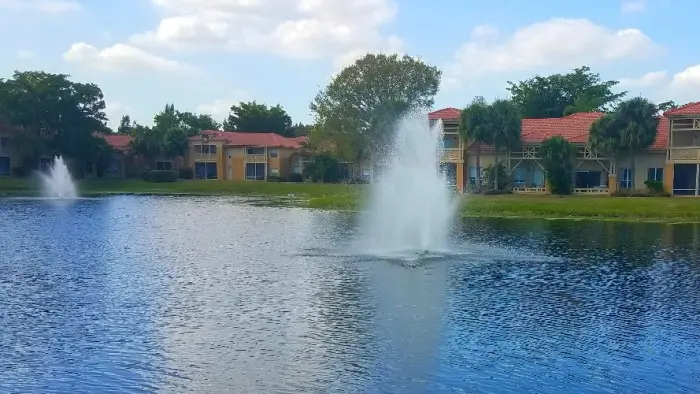Florida Condo Lakes
Who controls the lake that my condo is on?
The control and ownership of the lake that your condo association is situated on depend on specific legal arrangements and property boundaries.
Private Ownership:
- If the lake is man-made and within the condo development, it might be privately owned by the condo association or the individual condo owners.
- In this case, the association would have control over its use, maintenance, and any amenities (such as docks or beaches) associated with the lake.
Public Ownership:
- If the lake is natural (not man-made) and part of a larger ecosystem, it is likely publicly owned by a government entity (such as the state or local government).
- Publicly owned lakes are typically considered common resources accessible to everyone.
- Easements and Rights:
- Even if the lake is publicly owned, condo residents may have easement rights to access it.
- These rights are usually outlined in the condo's governing documents.
Legal Documentation:
- To determine ownership definitively, consult the condominium documents, including the declaration, bylaws, and plat maps.
- These documents specify property boundaries and any shared areas.
Local Regulations:
- Local zoning laws and environmental regulations also play a role in determining lake ownership and usage rights.
- Condo associations must adhere to these regulations.
Alligators In Lakes Near Condos
Alligators can indeed become a nuisance near lakes close to condominiums in Florida.
Nuisance Criteria:
Generally, an alligator may be considered a nuisance if it's at least 4 feet in length and believed to pose a threat to people, pets, or property. Smaller alligators (less than 4 feet) are usually not dangerous unless handled1.
Statewide Nuisance Alligator Program (SNAP):
The Florida Fish and Wildlife Conservation Commission (FWC) administers SNAP. The program proactively addresses alligator threats in developed areas while conserving alligators in their natural habitats. If you're concerned about an alligator, call the Nuisance Alligator Hotline at 866-FWC-GATOR (866-392-4286). When a complaint meets the criteria, SNAP issues a permit to a contracted nuisance alligator trapper for removal1.
Removal Process:
When captured, nuisance alligators are euthanized. The term sometimes used for this is "harvested". Relocation is not an option because alligators often try to return to their original capture site. Relocated alligators can create problems for people or other alligators along the way.
Safety Precautions:
Never handle an alligator, even a small one, as bites can result in serious infection and it's illegal. If you encounter an alligator under 4 feet in your swimming pool, on your porch, or in a similar situation, call the Nuisance Alligator Hotline1. Remember to prioritize safety and report any concerns promptly.
Remember that the specific rules and regulations for condo associations that are on lakes can vary widely from one condo association to another, so it's crucial to consult your condo's governing documents and communicate with the association to understand your rights with regard to a lake.

Prospective Florida condo buyers should, if they don't understand how lakes can impact their condo purchase, engage licensed and reputable attorneys and advisors to guide their buying decision.